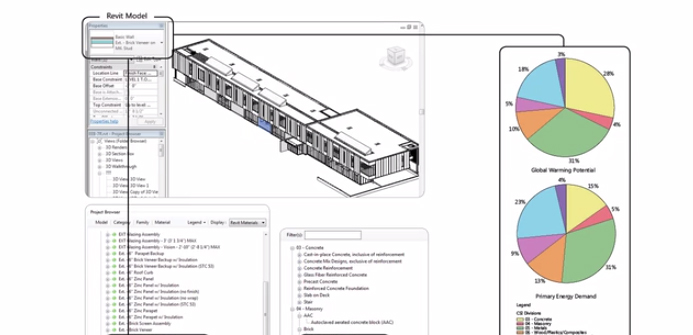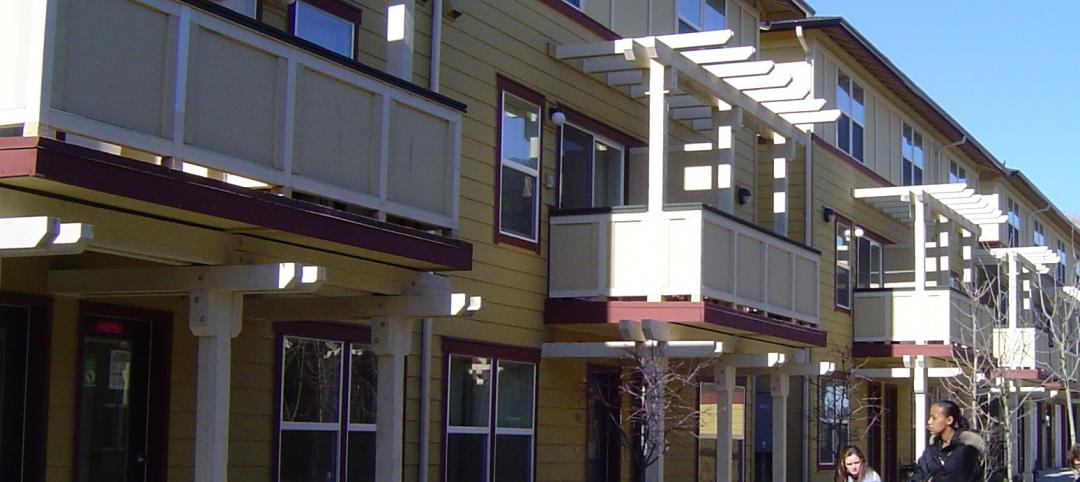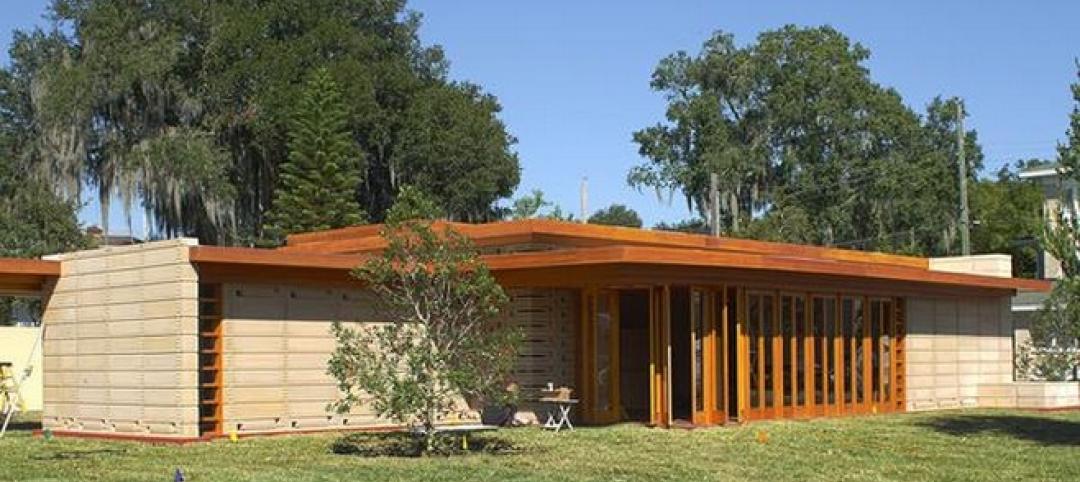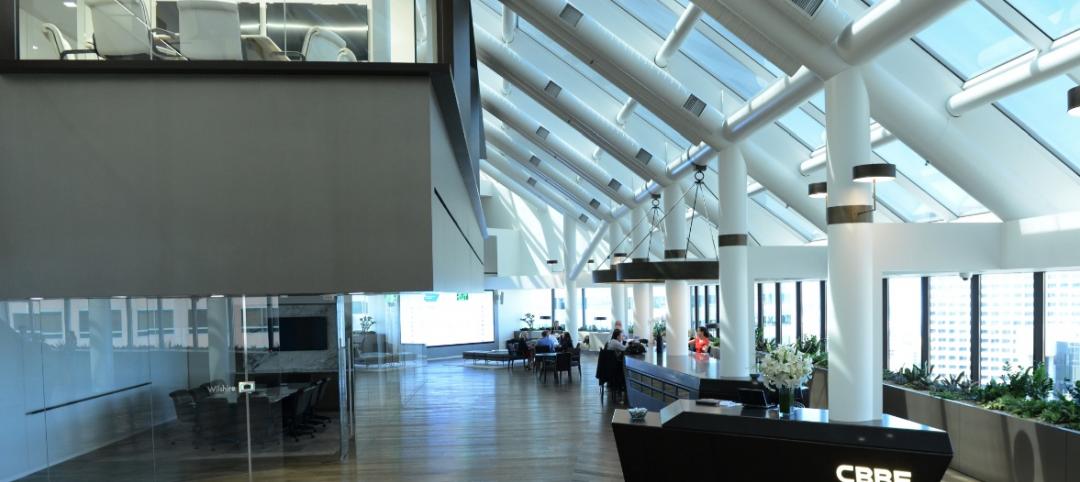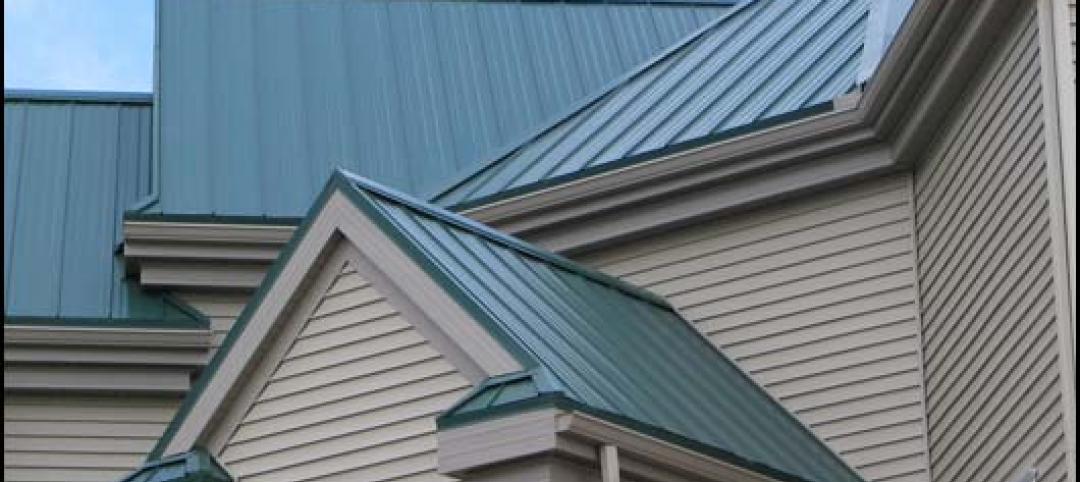Architecture firm KieranTimberlake, in conjunction with PE International and Autodesk Sustainability Solutions, announce the commercial availability of Tally, a software application for Revit that calculates the environmental impact of building materials.
It is the only application to be fully integrated into Revit, providing architects, engineers, and building professionals with insight into how materials-related decisions made during design influence a building’s overall ecological footprint.
Backed by the rigor and credibility of GaBi data from PE International, the application enables life cycle assessment (LCA) on demand, documenting information across eight life cycle impact categories that align with LEED v4 and other rating systems.
The commercial release follows a three-month public beta, in which nearly 500 users tested Tally and provided feedback on a broad range of design scenarios.
Bringing Life Cycle Data to the Design Process
While working in a Revit model, Tally users correlate modeled elements to a custom LCA database built on GaBi, the largest environmental dataset for LCA used by leading corporations worldwide for both internal and critically-reviewed published studies. The database combines material attributes, assembly details, engineering and architectural specifications with environmental impact data, including branded information from manufacturer environmental product declarations (EPDs).
“Tally empowers design professionals to evaluate product impacts early in the design phase, enabling smarter material selection, and ultimately the construction of better, high-performance buildings,” states Heather Gadonniex, director of strategic business development for PE International.
“Tally addresses a range of questions, whether comparing a whole building to a benchmark, exploring variations in building massing or construction type, or selecting finishes,” explains Roderick Bates, Tally development team leader at KieranTimberlake. “It can show where the largest environmental impacts reside within a design, and ways in which they compare across material options.”
Complete Bill of Materials
Buildings are composed of thousands of parts, each with their own origins and manufacturing flows, not all of which are accounted for in a Revit model. Tally helps paint a comprehensive portrait of a building and the products that go into it.
The specific quantities of materials like paint, sealants, fasteners, or grout not modeled in Revit are essential to a life cycle assessment. Tally lets users assign materials and quantities, then leverage the tool to perform material takeoffs and provide a complete bill of goods for a building. Currently, no other environmental assessment tool provides this function.
New enhancements and features have been released in the commercial version:
- Data can now be added to a Revit template to save time and promote firm-wide consistency.
- Elements from linked models can be filtered by phase and workset.
- New assemblies have been added, including a wide array of cladding panels, complete with hardware and finishes.
- New materials have been added, including actual GaBi life cycle data from product manufacturer EPDs.
Pricing and Information
Tally is available immediately as a 30-day free trial through Autodesk Exchange or http://www.choosetally.com, where video tutorials are also available. After 30 days, a license must be purchased to continue use. The cost per floating license is $1,200 USD annually. Educational licenses for non-commercial use are available by request to support@choosetally.com.
Related Stories
| Nov 4, 2013
Architecture and engineering industry outlook remains positive on all major indicators
While still below pre-recession levels, all of the key indicators in the latest Quarterly Market Forecast (QMF) report from PSMJ Resources remain in positive territory.
| Nov 1, 2013
CBRE Group enhances healthcare platform with acquisition of KLMK Group
CBRE Group, Inc. (NYSE:CBG) today announced that it has acquired KLMK Group, a leading provider of facility consulting, project advisory and facility activation solutions to the healthcare industry.
| Oct 31, 2013
74 years later, Frank Lloyd Wright structure built at Florida Southern College
The Lakeland, Fla., college adds to its collection of FLW buildings with the completion of the Usonian house, designed by the famed architect in 1939, but never built—until now.
| Oct 31, 2013
CBRE's bold experiment: 200-person office with no assigned desks [slideshow]
In an effort to reduce rent costs, real estate brokerage firm CBRE created its first completely "untethered" office in Los Angeles, where assigned desks and offices are replaced with flexible workspaces.
| Oct 30, 2013
15 stellar historic preservation, adaptive reuse, and renovation projects
The winners of the 2013 Reconstruction Awards showcase the best work of distinguished Building Teams, encompassing historic preservation, adaptive reuse, and renovations and additions.
| Oct 30, 2013
11 hot BIM/VDC topics for 2013
If you like to geek out on building information modeling and virtual design and construction, you should enjoy this overview of the top BIM/VDC topics.
| Oct 29, 2013
Increased backlogs, margins lead to renewed optimism in global construction
After prolonged economic uncertainty, a majority of executives in the global engineering and construction sector have fresh confidence in the growth prospects for the industry, according to KPMG International's 2013 Global Construction Survey. A general increase in backlogs and margins is giving cause for optimism across the industry, with further growth anticipated.
| Oct 29, 2013
BIG opens subterranean Danish National Maritime Museum [slideshow]
BIG (Bjarke Ingels Group) has completed the Danish National Maritime Museum in Helsingør. By marrying the crucial historic elements with an innovative concept of galleries and way-finding, BIG’s renovation scheme reflects Denmark's historical and contemporary role as one of the world's leading maritime nations.
| Oct 28, 2013
Urban growth doesn’t have to destroy nature—it can work with it
Our collective desire to live in cities has never been stronger. According to the World Health Organization, 60% of the world’s population will live in a city by 2030. As urban populations swell, what people demand from their cities is evolving.
| Oct 28, 2013
Metal roofs are topping more urban dwellings
Given their durability and ease of use, metal roofs have been a common feature on rural houses for decades. Now they’re becoming an increasingly popular choice on urban dwellings as well.


